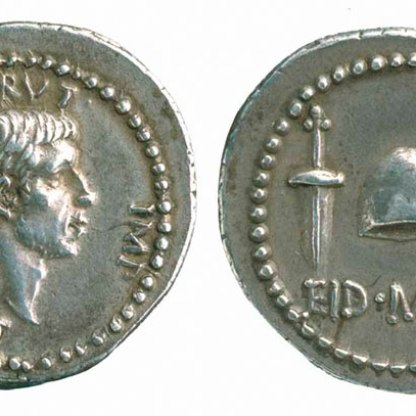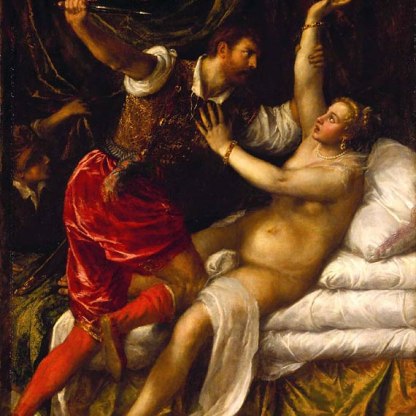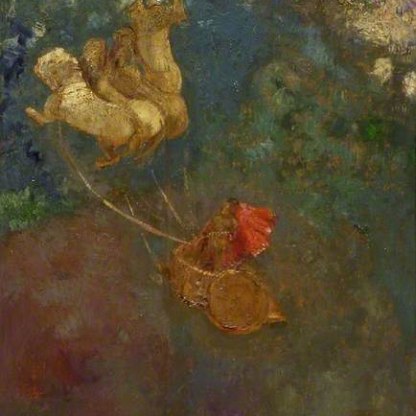The Rape of Lucretia
In sixteenth-century Europe, the story of the rape of Lucretia and her subsequent suicide was so well known that the Paduan philosopher and literary critic Sperone Speroni could write, 'There is no one so stupid that he has not heard of her.'
The story is found in the Roman historian Livy's History of Rome, an account which was adapted into verse by Ovid in the Fasti – a long poem based upon the Roman calendar, composed in the early first century CE. What was reported first as history became a fable about treachery and honour.
Ovid's account is as follows:
The enemy Tarquin entered the inner part of Collatinus' house like a guest. He was warmly welcomed, for he was related to the family by blood. Unaware of everything, the unlucky Lucretia prepared a meal for her enemy.
Tarquin had finished his dinner, and it was time for sleep. It was dark, and there was no light in any part of the house. He got up, freed his sword from its golden sheath, and entered the virtuous wife's room. He sat on the bed, and spoke:
'I have a sword with me, Lucretia. This is Tarquin, the king's son, speaking to you.'
She said nothing: she had no voice or power of speech or thought in her whole breast. She simply trembled, like a little lamb that has left the fold and lies trapped under an attacking wolf.
What should she do? Fight? A woman is always defeated in a fight. Cry out? In his right hand was the sword forbidding that. Run away? His hands were planted on her breasts, squeezing them, those breasts touched then for the first time by a stranger's hand. Her enemy lover stood over her with prayers, offers and threats, but not with prayers nor offers nor threats could he move her.
'It's no use to you', he said. 'I'll take away your life by dishonour. I, the adulterer will bear false witness to your adultery; I will murder a household slave, and people will think that you were caught with him.'
The girl yielded, defeated by fear of infamy. Victor, why do you rejoice? This victory will destroy you. Alas, Tarquin, that one night cost your kingdom!
Ovid, Fasti, 2, 787ff
After the rape, Lucretia tells all to her husband, Brutus, and her father. She then stabs herself, unable to bear the dishonour Tarquin's crime has bought upon her own family. 'Though I acquit myself of the sin', she says in Livy, 'I do not absolve myself of the punishment. Nor in time to come shall ever unchaste woman live, through the example of Lucretia.'
Brutus and his friends and family vowed vengeance upon Tarquin, and the subsequent war brought about the downfall of the Roman kings. Lucretia was seen, therefore, both as a paragon of wifely virtue and as the martyr on whose grave the ancient Roman Republic was built. In Renaissance Venice, 'the Most Serene Republic,' this was a significant combination.
Lucretia's suicide was portrayed in art more commonly than the rape that led to it, and Titian himself had treated the subject fifty years earlier. This painting, left, is now in the Kunsthistorisches Museum in Vienna.
An early eighteenth-century maiolica plaque in the Fitzwilliam [EC.33-1941], decorated by Carlo Antonio Grue, shows the dead Lucretia surrounded by her grieving family.
Other highlight objects you might like
Other pathways and stories you might like
Sign up to our emails
Be the first to hear about our news, exhibitions, events and more…





